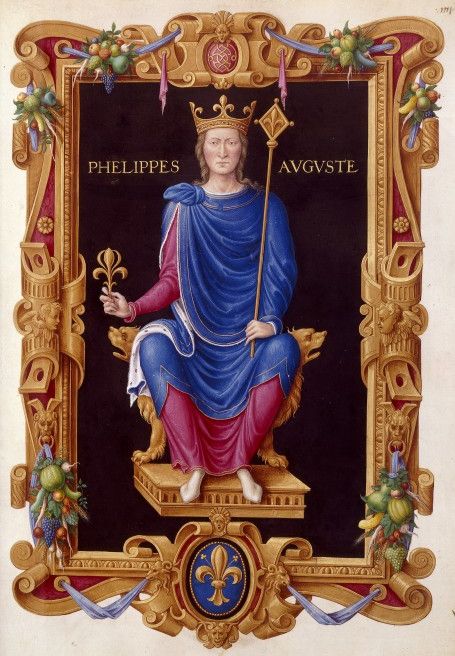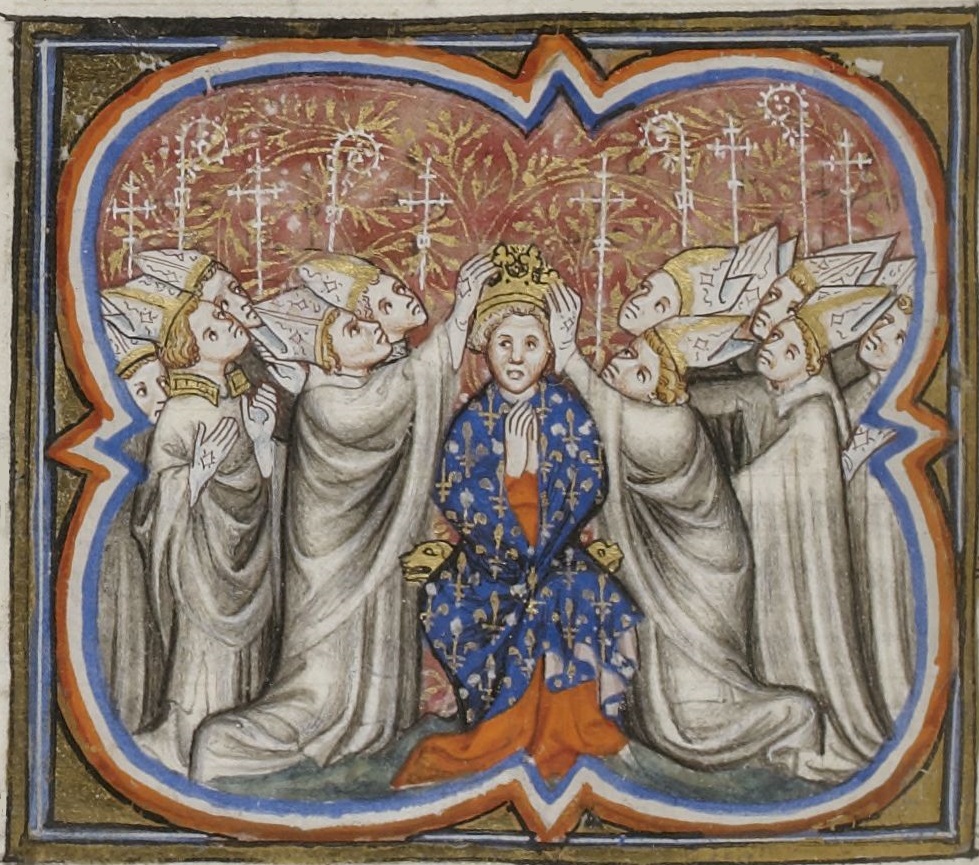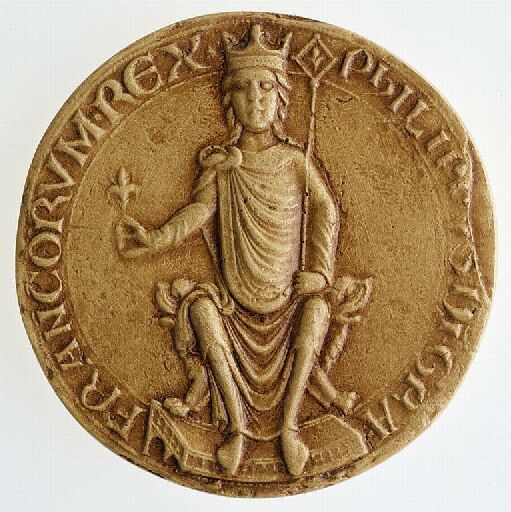Philip II, King of France, 1165-1223
Enlarge text Shrink text- Levis Mirepoix, A. F. J. P. M. Les trois femmes de Philippe Auguste, 1947.
- La France de Philippe Auguste, 1982 (subj.)t.p. (Philippe Auguste) p. 7 (only son of Louis VII, Philippe II succeeded 9/18/1180)
- Baldwin, J.W. The government of Philip Augustus, c1985:CIP pref. (Philipp II Augustus, Konig von Frankreich)
- Enc. Amer., 1988(Philip II, 1165-1223, king of France; called "Philip Augustus;" crowned 1179)
- Collier's enc., c1987(Philip II or Philip Augustus, 1165-1223, Capetian king of France)
- Acad. Amer. enc.(Philip II, king of France (Philip Augustus); picture caption: Philip II Augustus)
- Holzapfel, T. Papst Innozenz III., Philipp II. August, Konig von Frankreich ... c1991.
Philip II (21 August 1165 – 14 July 1223), also known as Philip Augustus (French: Philippe Auguste), was King of France from 1180 to 1223. His predecessors had been known as kings of the Franks (Latin: rex Francorum), but from 1190 onward, Philip became the first French monarch to style himself "King of France" (rex Francie). The son of King Louis VII and his third wife, Adela of Champagne, he was originally nicknamed 'God-given' (Dieudonné) because he was a first son and born late in his father's life. Philip was given the epithet "Augustus" by the chronicler Rigord for having extended the crown lands of France so remarkably. After decades of conflicts with the House of Plantagenet, Philip succeeded in putting an end to the Angevin Empire by defeating a coalition of his rivals at the Battle of Bouvines in 1214. This victory would have a lasting impact on western European politics: the authority of the French king became unchallenged, while the English King John was forced by his barons to assent to Magna Carta and deal with a rebellion against him aided by Philip's son Louis, the First Barons' War. The military actions surrounding the Albigensian Crusade helped prepare the expansion of France southward. Philip did not participate directly in these actions, but he allowed his vassals and knights to help carry them out. Philip transformed France into the most prosperous and powerful country in Europe. He checked the power of the nobles and helped the towns free themselves from seigneurial authority, granting privileges and liberties to the emergent bourgeoisie. He built a great wall around Paris ("the Wall of Philip II Augustus"), re-organised the French government, and brought financial stability to his country.
Read more on Wikipedia >
 Personality
Personality









